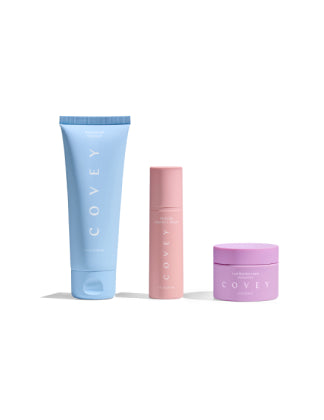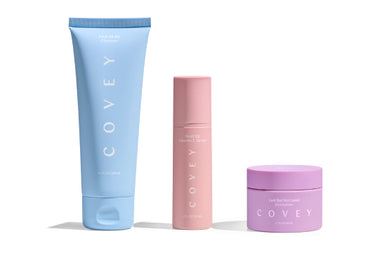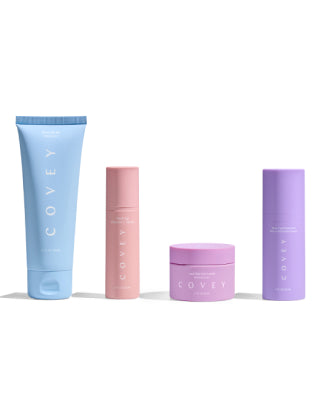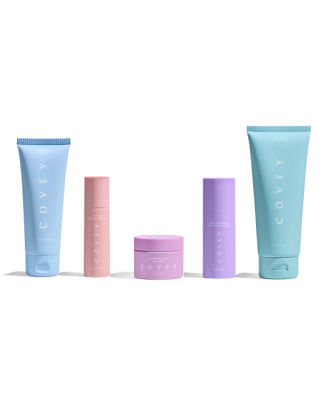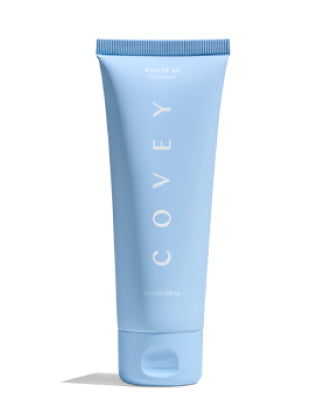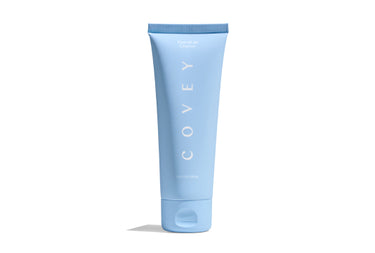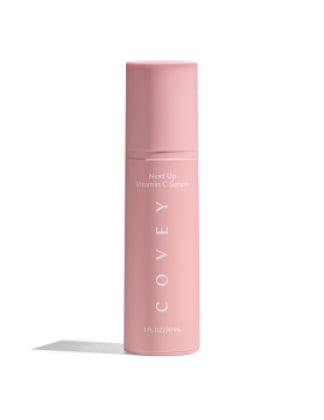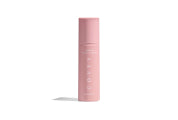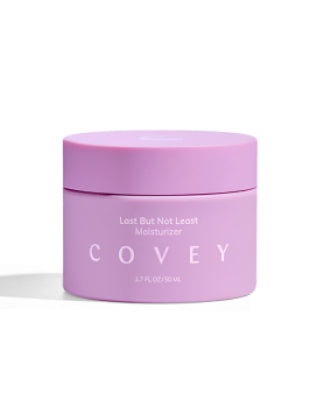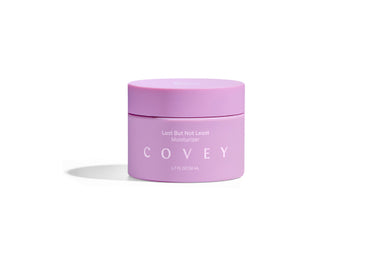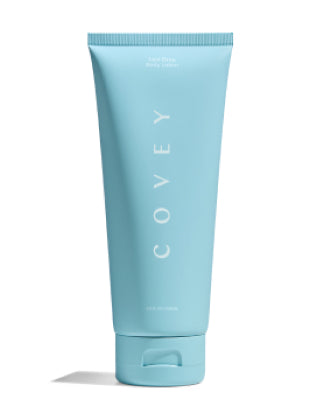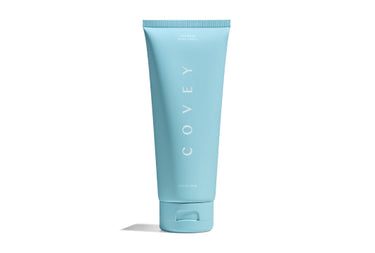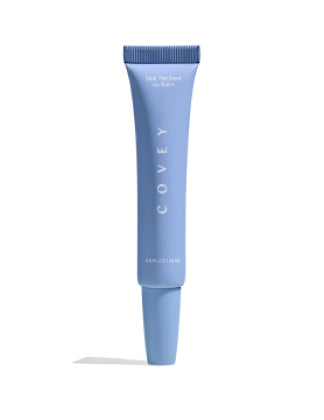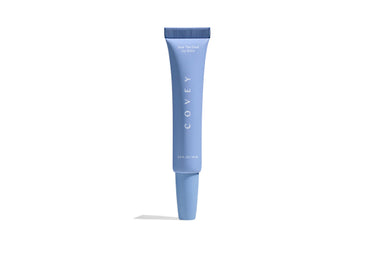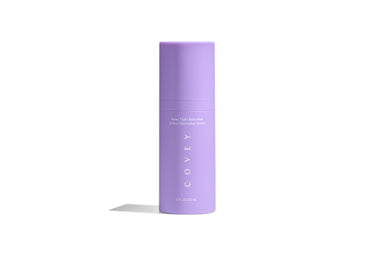
Can Vitamin C Be Absorbed Through the Skin?
Skincare bloggers, beauty editors, and dermatologists alike are hailing vitamin C as the Holy Grail of skincare ingredients — and for good reason. Like the ingestible vitamin C found in a glass of orange juice or an immune-boosting supplement, topical vitamin C is a popular antioxidant found in many skincare serums.
Think of it as sunshine in a bottle: With continued use, vitamin C can brighten dull skin, lighten dark spots, reduce hyperpigmentation and sun damage, as well as firm and tighten the skin.
Its effectiveness makes it the MVP of any skincare routine, but many first-time users question if vitamin C can really be absorbed through the skin by way of serums and creams. Really, there’s a science to each and every skincare product that you use — vitamin C serums, especially.
Here, we tell you everything you need to know about how to make vitamin C a vital part of your everyday skincare routine, including tips on how to make sure it’s really absorbed through the skin to get the best (read: most radiant) results.
What are the Skincare Benefits of Vitamin C?
Dermatological studies have found that vitamin C is one of the most effective antioxidants for skincare, boasting a range of benefits for each and every skin type. Here’s how:
- Vitamin C repairs cell damage and keeps your skin cells healthy and properly-functioning.
- Vitamin C fights free radicals, which damage your cells, leading to wrinkles, dark spots, fine lines, and saggy skin. Vitamin C’s high acidity level stimulates collagen and elastin production, speeding up your skin’s regeneration process. With consistent use, the antioxidant can prevent premature signs of aging.
- When paired with vitamin E (FYI, Covey’s Next Up Vitamin C Serum is), it protects your skin from precancerous damage caused by UV exposure.
- Vitamin C helps brighten and even skin’s overall tone and texture due to an increase in collagen production. Although it tackles existing dark spots and hyperpigmentation head-on, regular use of vitamin C also prevents hyperpigmentation from happening in the first place.
- Its anti-inflammatory properties can reduce redness and sensitivity.
Can Vitamin C Be Absorbed Through the Skin?
The answer is yes! Vitamin C can be absorbed through the skin — though it depends on the type of vitamin C you use.
Absorption of vitamin C is mainly dependent on its pH level, which can often be found listed on the product’s packaging (when in doubt, refer to the brand’s website for further details).
If you have more normal skin, go for a vitamin C serum with a lower pH of around 3.5 for optimal absorption. For sensitive skin, stick with something closer to the skin’s pH level, at around 5 or 6.
But sometimes, the product’s pH levels may be hard to track down. In that case, stick with certain vitamin C derivatives to see the best results.
The most effective type of vitamin C, by far, is Tetrahexyldecyl Ascorbate — often shortened to THD Ascorbate on product labels. It’s said to be 50 percent more powerful than other vitamin C products on the market, making it one of the most promising options out there.
Dermatological trials have found that THD Ascorbate penetrates skin faster and deeper than any other form of Vitamin C. While most other derivatives are water-soluble, THD Ascorbate is oil-soluble, meaning it can quickly and effectively penetrate both layers of the skin.
What Type of Vitamin C Product Absorbs Best?
If you’ve never used Vitamin C skincare before, it’s important to note that it can sometimes cause stinging or irritation, especially as your skin gets used to the ingredients.
L-Ascorbic Acid, in particular, is known to cause a burning sensation, so even those without sensitive skin may find it too strong to tolerate regular use.
On the other hand, some beauty lovers swear by L-Ascorbic Acid because it’s the purest form of vitamin C, there are far better alternatives on the market today, like THD Ascorbate, which is both non-acidic and suitable for almost everyone’s skin. Products containing L-Ascorbic Acid also oxidize the fastest and become ineffective about six months after opening. In contrast, THC Ascorbate is one of the most stable and longest-lasting varieties of Vitamin C, so you can empty the whole jar until the very last drop.
Vitamin C serums, like Covey Skin’s Next Up Vitamin C Serum, have a high concentration of actives, allowing all the antioxidants to stabilize and better penetrate the skin. Vitamin C tends to have a higher absorption rate if it’s combined with other good-for-skin ingredients, including vitamin E, ferulic acid, vitamin B, and hyaluronic acid.
@coveyskin Our Next Up Vitamin C Serum is game-changing for your skin! 🍊✨ Formulated with 15% THD Ascorbate, this serum goes deep into the skin to help collagen production, protect with anti-oxidants and brighten to help with hyper pigmentation! Shop at CoveySkin.com now to get your hands on Next Up Vitamin C Serum🕊 #CoveySkin ♬ original sound - jovynn
How Can I Incorporate Vitamin C Into my Skincare Routine?
Anytime you throw a new product into the mix, there's a chance that your skin will freak out. Vitamin C, while great, is notorious for causing redness and irritation, especially for those with sensitive skin.
- To keep your skin happy, start by using vitamin C serums one, two or three times a week until you think it’s safe to move forward with daily use.
- Keep in mind that it may take several weeks to see an improvement in your skin’s tone and texture.
- As a general rule, you should allow three weeks for visible results. Stick to your schedule to see your desired results — even if it takes a month or two.
Need some more info? Watch our co-founder Emily's interview with certified derm Dr. Julie Russak as they get into all things Vitamin C.
More Tips for Using Vitamin C
There are other dermatologist-approved tips to ensure that vitamin C properly absorbs through the skin, as well as helpful tricks to keep your glowing, radiant skin healthy and happy between uses. Here, a few:
- Pair it with SPF: Some vitamin C serums become less effective in the light, so it should be used in conjunction with a broad-spectrum sunscreen. Apply SPF 30 or higher on top of the vitamin C serum for maximum protection.
- Apply it in the right order: Vitamin C serums should be used on freshly-washed skin, right before applying moisturizer. Vitamin C moisturizers should always be used at the end of your skincare routine.
- Pick the right concentration type: Most vitamin C serums have concentration levels varying from 5 to 30 percent. Anyone with dry, sensitive skin should go for a lower concentration level since they are less irritating.
- Avoid benzoyl peroxide at all costs: Vitamin C generally plays well with others unless it’s used at the same time as benzoyl peroxide, a topical antiseptic used to treat acne and other skin conditions. When used together, benzoyl peroxide oxides vitamin C, making it less effective. Tip: Use one in the morning and the other at night to get the best of both worlds.
- Be guided by its color: Ideally, vitamin C serums should be colorless or have a very light, straw-like color. It turns orange or brown once it’s oxidized, making it less effective. (Hint, hint: Because it’s an oil-soluble derivative, Next Up is less watery and doesn’t oxidize as quickly as other vitamin C serums.)
- Store it safely: Keep all vitamin C products airtight in a cool, dark space.
When used correctly, Vitamin C can penetrate the outer layer and properly absorb through the skin. The end result: beautiful, glowing skin, free of dark spots, sun damage and other signs of aging.
So, want to harness the mega brightening power and skin healing benefits of Vitamin C?


